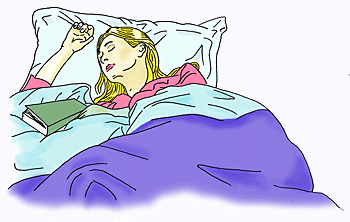geno-, gen-, genit-, gener-, -gen
(Greek > Latin: race, kind; line of descent; origin, creation; pertaining to sexual relations, reproduction, or heredity; and more recently, a gene or genes)
homeogeneous
Of a similar kind.
homeogenesis
The degree of relationship or similarity of the races from which individuals are descended.
homogeneity
Similar throughout; of uniform structure or composition.
homogeneous (hoh" muh JEE nee uhs)
1. Of the same composition or character throughout.
2. Having the same kind of constituent elements, or being similar in nature.
3. Having a uniform composition or structure.
2. Having the same kind of constituent elements, or being similar in nature.
3. Having a uniform composition or structure.
homogenesis, homogenetic
1. The reproduction by the same process in each generation.
2. A mode of reproduction in which the offspring are like the parent and have the same cycle of existence.
3. Non-alternation of generations; the succession of morphologically similar generations.
2. A mode of reproduction in which the offspring are like the parent and have the same cycle of existence.
3. Non-alternation of generations; the succession of morphologically similar generations.
homogenize, homogenized
1. To emulsify the fat particles in milk or cream so as to give it an even consistency and prevent cream from separating from the rest of the milk.
2. To become or to cause something to become homogeneous.
2. To become or to cause something to become homogeneous.
hormonogenesis
The production or formation of hormones; hormonogenic.
hylogenesis
hypnogenesis
The process of inducing or entering sleep or a hypnotic state.


hypnogenous
Arising from a state of hypnosis, such as unconscious material uncovered during the course of hypnoanalysis.
hypocarpogenous
iatrogenesis
1. An illness, injury, or fatality that is the direct result of medical intervention (doctor induced), ranging from inappropriate treatment to harmful drug interaction, misinterpretation of a lab test, or a fatal reaction to an injection of penicillin or other medication.
Adverse side effects and dangerous interactions between drugs are probably the most common types of iatrogenic illnesses.
2. Any adverse mental or physical condition induced in a patient through the effects of treatment by a physician or surgeon; for example, chemotherapy, often used to attenuate or cure a cancer, initiates a process that causes the individual to become severely ill.In an elderly person, a fall can lead to the use of restraints and bedrest, which can cause thrombophlebitis [inflammation of a vein in conjunction with the formation of a thrombus (a blood clot that obstructs a blood vessel)].
The use of a Foley catheter for incontinence can create a urinary tract infection and septic shock.
iconogenetics (s) (noun)
A reference to the origins of images or statues.
The originator or creator of an image or images: "An iconogenitor is considered to be an artist who provides icons for religious applications."
idiogenesis, idiogenetic
Spontaneous origin (as of a disease).


